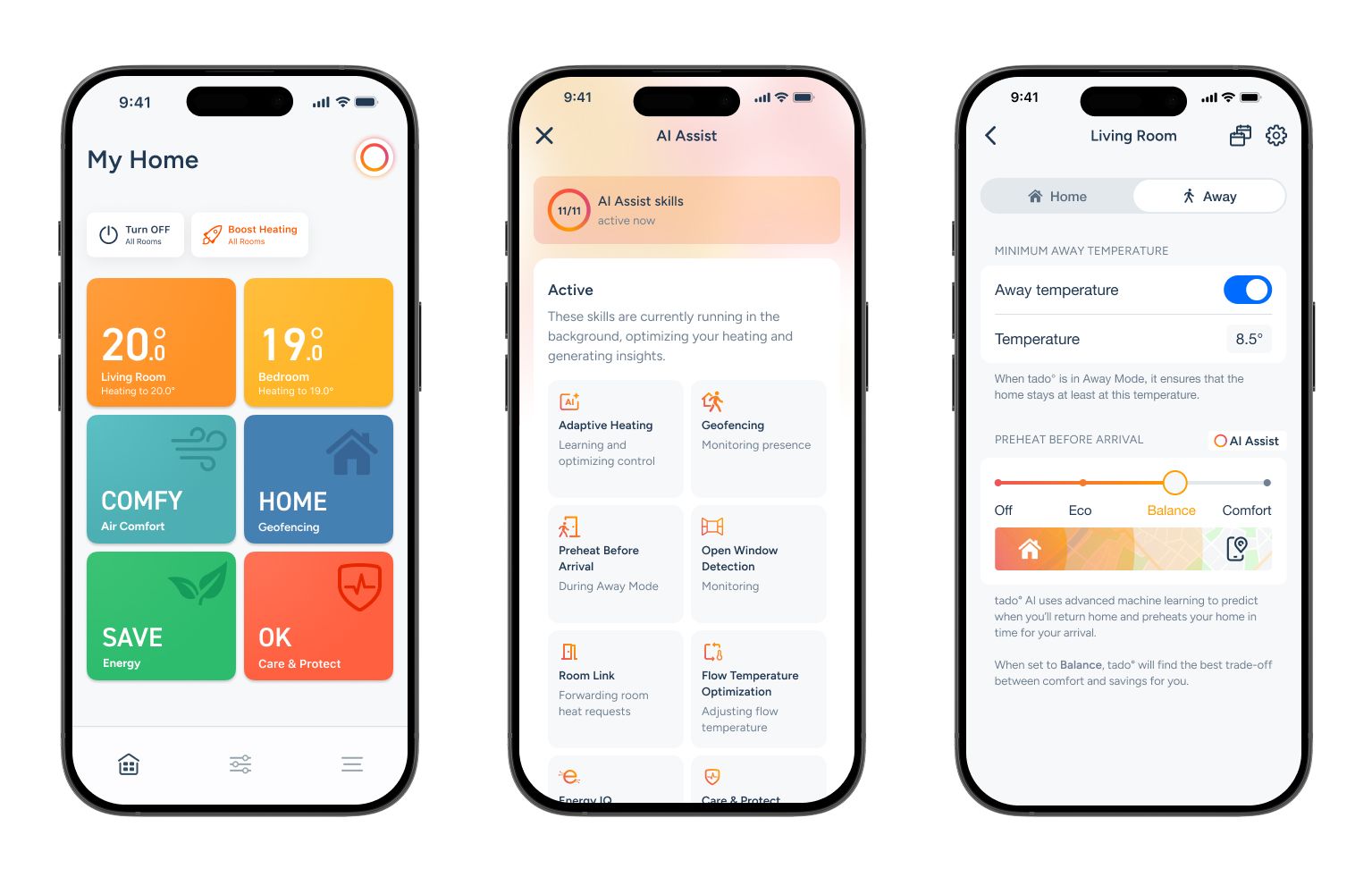Smart thermostat maker Tado just rolled out AI-powered heating features across Europe and the UK, promising to learn your home's unique thermal patterns and predict your arrival times. The AI Assist update builds on existing automation with machine learning that adapts to each room's heating characteristics, though skeptics question whether this represents genuine innovation or clever rebranding of standard smart home features.
Tado is betting that artificial intelligence can solve one of smart homes' oldest promises - actually making your heating smart enough to anticipate your needs. The German company's new AI Assist features launched today across Europe and the UK, upgrading existing Tado X thermostats with machine learning algorithms that claim to understand how your specific rooms heat and cool.
The timing feels strategic. As energy costs remain elevated across Europe, homeowners are hunting for any edge in efficiency. Tado's pitch centers on predictive heating - the system learns when you typically arrive home and pre-heats accordingly, while studying each room's thermal behavior to optimize radiator control.
"We've been testing advanced machine learning that learns, predicts, and optimizes heating in real time," according to Tado's press release. The AI Assist package includes four core features: Adaptive Heating that fine-tunes individual Smart Radiator Thermostats, Preheat Before Arrival predictions, Energy IQ insights showing exactly where energy goes, and Holiday Mode for extended absences.
But here's where things get interesting - and potentially problematic. Two of these features, Energy IQ and vacation modes, already existed in Tado's standard Auto Assist service. The company is essentially repackaging existing functionality under an AI umbrella while adding genuine machine learning to arrival predictions and room-specific optimization.
The pricing strategy reveals Tado's confidence in the rebrand. AI Assist costs exactly the same as the previous Auto Assist - £29.99 annually or £3.99 monthly for Tado X owners. Existing subscribers get automatic upgrades, though owners of older Tado hardware are left out entirely. It's a clear push toward newer devices while maintaining subscriber revenue.
This mirrors broader industry patterns where companies like Google Nest have quietly deployed similar predictive features without the AI marketing fanfare. Google's Nest Learning Thermostat has used algorithmic learning for years, studying occupancy patterns and thermal dynamics. The difference? Nest never felt compelled to rebrand these capabilities as "AI."












